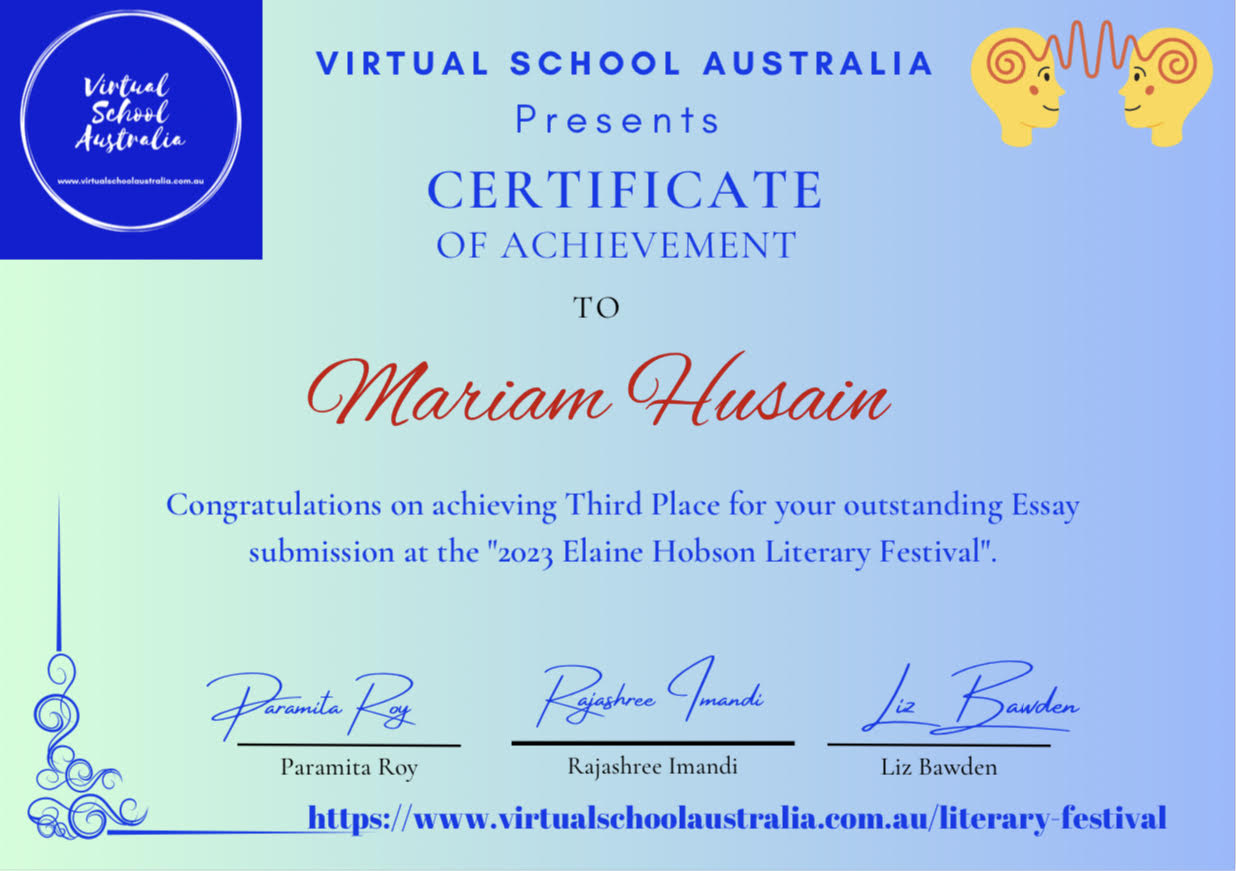
Empathy Our Sustainable Superglue
“Are you okay?” the repeated notification echoed in Priya’s mind, as she lay in bed, staring at her phone screen. The COVID-19 lockdown had taken a toll on her mental health, and she had spent weeks in bed, ignoring messages from friends and the hostile arguments between her parents. The pandemic had disrupted socialization and emphasized the need for empathy, especially for individuals like Priya, who had autism spectrum disorder. The importance of empathy, however, was not limited
to the pandemic; it is relevant for meeting worldwide challenges such as climate change, refugee crises, and LGBTQI+ discrimination.
Empathy, the ability to enter another’s feelings, has been recognized for centuries, with various terms such as the German Einfühlung and Hume’s claim that minds are mirrors to one another. It is an
essential communication skill, both innate and cultivated, needed to meet the challenges of a globalized world. Reading fiction has been linked to empathy and prosocial behaviour, while anti-
bullying programs benefit from psychoeducation and understanding gender differences towards
emotional processing, which can help in creating an inclusive society. Educators can use artistic disciplines to train empathy and emotional resilience in their students, helping them regulate
overwhelming sensitivity and anger.
Empathy is also a failproof counter to bigotry, it works by promoting solidarity and trust. It is crucial to keep it alive, despite collective exhaustion brought on by the pandemic, for us and for future
generations. Priya’s friends showed support through understanding, but she longed for someone who could truly relate. Her teachers provided video counselling calls to help her out of depression with
compassionate empathy. In our times when songs like “Numb Little Bug” feature on most teenage playlists, the melody of empathy is our hope.
A critical tool for healthcare providers, who must shoulder the obligation of understanding the point
of view of their patients, empathy is woven into the very fabric of our most indispensable societal system. The deterioration of health brings with it pain and stress and needs reinforcement of self-care which requires aid from others, primarily healthcare providers. Sicknesses, especially deadly ones like cancer, carry anguish, stigma, depression, loss of personal efficacy, and lack of physical and mental wellness. Social work services here are about communication and compassion to improve the
emotional and social well-being of those who are terminally ill, desiring only to feel understood. It is
evident from experience that empathy and respect are critical for building trust between medical professionals and patients. Medical students must be equipped with these skills. Judges, lawmakers,
and policy makers similarly could assess the empathy gap to deliver humane judgments and create comprehensive governance mandates. It is empathy that can fuel acts of voluntary blood and organ
donation, leading to an overall sense of fulfilment.
Our bodies produce social hormones, showing that we are wired to care. Brain malleability means our
empathy is not fixed. Compassionate empathy, the equilibrium of cognitive and emotional empathy, is
what drives people to act. Cautioned against exploitative use, tempering it with reason, it can be strategized to serve causes beyond personal suffering, such as civil rights and environmental
protection. Gratitude, humour, and the ability to cope with difficult situations are all dimensions of empathy that can make us more positive people together with Artificial Intelligence breakthroughs
that are resilience focused. If we let doors be skylights, portals of hope for the child within to bask in the glimmer of a greater world beyond, we might experience the power of forgiveness.
Our broken planet can be glued back together with empathy, like art made anew through the tradition
of kintsugi.
References
Alamolhoda, S.H., Zare, E., Atena HakimZadeh, null, Zalpour, A., Vakili, F., Razie Mohammadi
Chermahini, null, Ebadifard, R., Masoumi, M., Niayesh Khaleghi, null and Malihe Nasiri, null (2023).
Adolescent mental health during covid-19 pandemics: a systematic review. International Journal of
Adolescent Medicine and Health, [online] 35(1), pp.41–60. doi:https://doi.org/10.1515/ijamh-2022-
0058.
Irwanto, K.A., Aditomo, A. and Natalya, L. (2020). ‘Why Fiction is Better than Reality’: The
Influence of Reading Fiction Narrative on Empathy [‘Why Fiction is Better than Reality’: Pengaruh
Membaca Fiction Narrative terhadap Empati". ANIMA Indonesian Psychological Journal, 35(2).
doi:https://doi.org/10.24123/aipj.v35i2.2909.
Iuso, S., Severo, M., Ventriglio, A., Bellomo, A., Limone, P. and Petito, A. (2022). Psychoeducation
Reduces Alexithymia and Modulates Anger Expression in a School Setting. Children, [online] 9(9),
p.1418. doi:https://doi.org/10.3390/children9091418.
Jiang, Q., Zhang, Y. and Pian, W. (2022). Chatbot as an emergency exist: Mediated empathy for
resilience via human-AI interaction during the COVID-19 pandemic. Information Processing &
Management, [online] 59(6), p.103074. doi:https://doi.org/10.1016/j.ipm.2022.103074.
Kosowski, P. (2021). Relationships between forgiveness, life satisfaction, and empathy in honorary
blood donors. The mediating role of forgiveness. Kwartalnik Naukowy Fides et Ratio, 48(4),
pp.363–378. doi:https://doi.org/10.34766/fetr.v48i4.879.
Trofimova, I.N. and Gaykalova, A.A. (2021). Emotionality vs. Other Biobehavioural Traits: A Look
at Neurochemical Biomarkers for Their Differentiation. Frontiers in Psychology, 12.
doi:https://doi.org/10.3389/fpsyg.2021.781631.
Tso, R.V., Chui, C.O. and Hsiao, J.H. (2022). How does face mask in COVID-19 pandemic disrupt
face learning and recognition in adults with autism spectrum disorder? Cognitive Research: Principles
and Implications, 7(1). doi:https://doi.org/10.1186/s41235-022-00407-4.
The Economist. (n.d.). How to increase empathy and unite society. [online] Available at:
https://www.economist.com/open-future/2019/06/07/how-to-increase-empathy-and-unite-society.
Yang, N., Zhang, Y., Liu, Z., Wang, F., Yang, G. and Hu, X. (2022). Influence of Social Workers’
Empathy Ability on Suicidal Ideation of Cancer Patients. Frontiers in Public Health, 10.
doi:https://doi.org/10.3389/fpubh.2022.925307.


No Comments